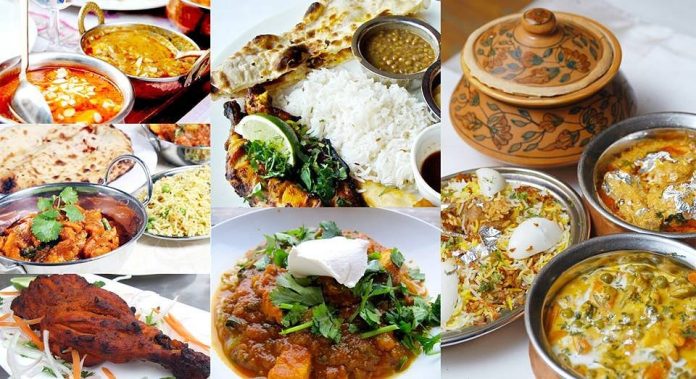In today’s fast-paced world, conversations about nutrition frequently centre on superfoods, supplements, and the latest dietary trends. From protein powders to plant-based milks, modern consumers are spoilt for choice. Yet, somewhere in the rush to embrace the new, we’ve overlooked the incredible value of traditional foods that have quietly supported human health for centuries.
Our grandparents didn’t have access to fancy packaged snacks or imported health tonics, yet they enjoyed balanced diets, resilient digestion, and a natural relationship with food. The secret wasn’t complicated – it lay in fresh, seasonal ingredients, simple cooking methods, and the inclusion of naturally preserved foods like pickles, fermented curd, sprouted grains, and homemade chutneys.
As we navigate modern lifestyles marked by long working hours, processed meals, and minimal physical activity, it’s worth revisiting why these age-old staples deserve a place in our diets.
The Modern Diet Dilemma
The globalisation of food has brought convenience and variety, but it has also distanced us from our roots. Highly processed meals, loaded with refined sugars, unhealthy fats, and artificial additives, dominate supermarket shelves. These foods often lack the fibre, micronutrients, and beneficial bacteria our bodies need for optimal functioning.
The result? Rising rates of lifestyle-related issues such as obesity, type 2 diabetes, heart disease, and digestive disorders. While modern medicine offers treatment options, prevention still lies largely in what we put on our plates. The truth is, nutrition is not just about calorie counting or macronutrient ratios — it’s about eating food that nourishes the body at every level.
Looking Back to Move Forward
The shift towards traditional eating isn’t about romanticising the past; it’s about recognising the science behind practices that worked. Our ancestors understood food preservation, seasonal eating, and the medicinal properties of herbs and spices long before these concepts were scientifically validated.
Take fermented foods as an example. Whether it was kimchi in Korea, sauerkraut in Germany, or pickles in India, every culture developed methods to extend the shelf life of seasonal produce while enhancing its nutritional value. These methods not only reduced food waste but also contributed to a healthier gut microbiome – something science now links to immunity, mental health, and metabolic function.
The Case for Fermented and Preserved Foods
Modern research increasingly confirms what tradition taught us: fermentation and natural preservation can boost the nutritional profile of food. Here’s why these foods matter in a modern diet:
- Gut Health Support
Fermentation encourages the growth of probiotics – beneficial bacteria that help balance the gut microbiome. A healthy gut improves digestion, nutrient absorption, and even mood regulation. - Nutrient Availability
The preservation process can make certain nutrients more bioavailable. For instance, fermenting vegetables increases levels of B vitamins and antioxidants. - Reduced Reliance on Artificial Additives
Traditional preservation relies on natural methods like salt, oil, and sun-drying rather than synthetic preservatives, reducing exposure to unnecessary chemicals. - Sustainable Eating
By extending the life of fresh produce, preserved foods help reduce food waste and promote seasonal eating habits.
Pickles – More Than a Side Dish
In India, pickles (achar) are one of the most enduring examples of traditional preservation. But they’re more than just a tangy side to your meal – they’re a nutritional powerhouse when prepared the right way. Authentic pickles made with cold-pressed oils, whole spices, and fresh seasonal produce can deliver:
- Probiotics from natural fermentation aid digestion and gut health.
- Antioxidants from spices like turmeric, fenugreek, and mustard seeds help fight oxidative stress.
- Appetite Stimulation through their sharp, tangy flavours, encouraging better eating in those with reduced appetite.
Sadly, many mass-produced pickles today are stripped of these benefits due to excessive pasteurisation, refined oils, and artificial flavour enhancers. This is where small-batch, traditional producers make a difference; preserving not only taste but also nutrition.
Bringing Tradition into the Present
For those seeking healthier lifestyles, integrating traditional foods into a modern diet can be surprisingly simple. It doesn’t require a complete overhaul — just thoughtful additions:
- Swap one packaged snack a day for a seasonal fruit or homemade trail mix.
- Pair meals with a small spoonful of naturally fermented pickle or chutney.
- Incorporate sprouted legumes into salads for added protein and micronutrients.
- Try fermented beverages like buttermilk, kefir, or kombucha for digestive health.
These small changes can make a significant impact over time, helping bridge the gap between convenience and nutrition.
The Role of Authentic Food Brands
With busy schedules, not everyone can spend hours in the kitchen preparing traditional recipes. Fortunately, a growing number of brands are dedicated to bringing authentic, health-conscious foods to consumers without compromising on quality.
For example, those looking for the best homemade pickles can now find options crafted with traditional recipes, free from artificial preservatives, and made in small batches. One such brand, Nani Ka Pitara, specialises in pickles that are prepared just as they were in our grandmothers’ kitchens – with sun-dried produce, hand-roasted spices, and cold-pressed oils. These products prove that convenience doesn’t have to mean compromising on authenticity or health.
Nutrition Beyond the Plate
In modern life, we often think of nutrition purely in terms of what we eat. But traditional food cultures teach us that nutrition also encompasses how we eat. Meals were once slow, communal, and mindful – giving our bodies time to digest and our minds time to enjoy.
Eating slowly allows satiety signals to reach the brain, preventing overeating. Sharing meals encourages connection, which studies show can improve emotional well-being. Even the simple act of preparing food from scratch fosters a deeper awareness of what goes into our bodies.
Why Tradition Still Holds Relevance
The global wellness industry is booming, but much of what it promotes is rooted in ancient practices: intermittent fasting, fermented foods, herbal remedies, and mindful eating. What’s marketed as “trendy” today is often a rediscovery of traditions that never truly lost their value.
As we embrace the possibilities of modern nutrition, personalised diet plans, advanced supplementation, and food tech innovations, it’s important to remember that the foundations of health remain the same: fresh, unprocessed ingredients, balance, and diversity in our diets.
Bringing It All Together
The modern world has given us incredible access to food, but it has also distanced us from the origins of our meals. In seeking out traditional foods, we’re not rejecting progress; we’re enriching it with practices that have stood the test of time.
Whether it’s a bowl of sprouted lentil salad, a glass of homemade buttermilk, or a tangy spoon of pickle alongside your lunch, these simple inclusions can carry a wealth of nutritional and cultural value. They remind us that health isn’t about chasing the latest trend – it’s about honouring the wisdom that’s already in our kitchens.
In the end, good nutrition in the modern world is not about choosing between the old and the new. It’s about creating a plate where both coexist – where a time-tested pickle sits comfortably next to a quinoa salad, and where tradition quietly continues to nurture us, one bite at a time.



